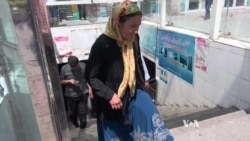Some local governments and institutes have posted notices in China's restive Xinjiang province banning students and civil servants from taking part in traditional fasting during the Islamic holy month of Ramadan. Experts on the region say although the orders are not new, they run the risk of reinforcing recent tensions.
Muslims around the world, including Uighurs in Xinjiang, China, are observing the Islamic holy month of Ramadan, which includes fasting from sunrise until sunset. But many in the restive region are banned from observing the fast - chiefly civil servants, teachers and students.
June Teufel Dreyer, a professor of political science at Miami University, said authorities usually couch the ban as a health issue.
"I am aware that it is actually nothing new. They have prohibited this before during Ramadan. And it is always presented as a health issue. That you shouldn't deprive yourself of food. Students need to keep their energy up to study. And civil servants need to keep their energy up to do their jobs properly," said Dreyer.
But, Dreyer said, given the recent violent attacks in Xinjiang, the ban has become more sensitive and has attracted more attention.
Oxford University's Reza Hasmath, who has published several books on China’s ethnic minorities, said the ban does not help the current situation.
"There is heightened tensions in Xinjiang among the Uighurs. Particularly given the ethnic violence that has been occurring over the last year. So this only reinforces more antagonism if anything," said Hasmath.
Alim Seytoff, president of the Uyghur-American Association and born in Xinjiang, also thinks the ban will cause Uighurs to become more dissatisfied. And, he said, it violates Beijing's statements that it grants ethnic and religious minorities preferential treatment.
"In fact, it means China does not have any preferential policy. It actually opposes Uighurs’ religious belief, it is an anti-religion policy. So many Uighurs, including me, dislike this policy very much," said Seytoff.
The conflict between Uighurs and the country's dominant Han Chinese has lasted for years, but has recently escalated. In May, two cars - widely believed to have been driven by Uighurs - plowed through a crowded market in Urumqi, with those in the car tossing explosives as they went. At least 39 died and over 100 were injured in the attack.
This report was produced in collaboration with the VOA Mandarin service.





